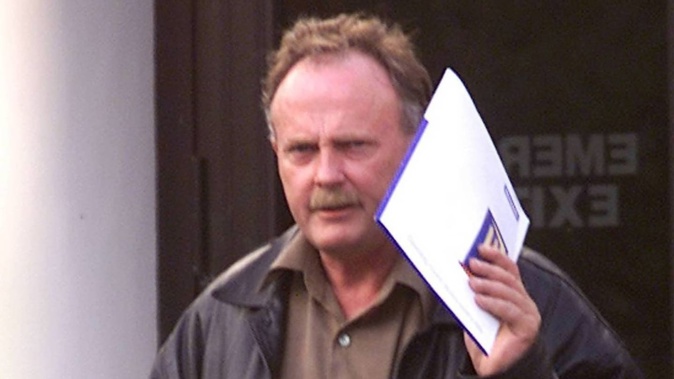
A fraudster accused of scheming to help import 400kg of Peruvian cocaine into New Zealand, with a pit stop in Texas, has been dealt another legal blow in his years-long battle to avoid extradition to the United States.
The Court of Appeal released its decision today for Miles John McKelvy, eight months after a European co-defendant was sentenced in the US to 25 years’ imprisonment for his involvement in the multinational trafficking operation.
The decision marks the third time since 2023 that New Zealand judges have rejected McKelvy’s argument the case would be more properly determined domestically.
US federal prosecutors in Texas want to put McKelvy on trial alongside two other New Zealanders, Auckland Hells Angels member Murray Michael Matthews and chemist Marc Patrick Johnson, who earned the criminal distinction of being one of New Zealand’s first meth cooks.
Authorities say the trio – with Romanian Hells Angels chapter president Marius Lazar and convicted double murderer Wen Hui Cui – were duped in 2020 by an undercover US Drug Enforcement Administration officer posing as a large-scale drug trafficker.
Cui, who was allegedly making arrangements from a phone smuggled into his Wiri prison cell, died in custody in 2021. Lazar, 50, was handed a lengthy sentence in January after he was found guilty by a Texas jury of the importing scheme and other charges, including attempted murder.
Matthews and Johnson, meanwhile, had been on the run for two years after skipping bail in Europe. However, authorities in Spain caught up to Matthews in March.

Hells Angels New Zealand member Murray Michael Matthews was arrested in Madrid, Spain, in March. Photo / Guardia Civil
In all, US authorities say, the group was caught in the act of discussing and making nearly US$1 million ($1.7m) in payments for a 400kg cocaine shipment that was to originate in Peru before making its way to Beaumont, Texas, where it would be concealed inside machinery.
The cocaine-laden machinery was then to be shipped to Romania before ending up in the Hells Angels’ distribution network in New Zealand, authorities said.
In communications with the undercover agent, authorities allege McKelvy confirmed his identity and his role within the tight-knit group, which was to help arrange transport documents and receive the cocaine when it arrived in New Zealand. At one point the agent asked McKelvy directly if he was aware the plan involved importing 400kg of cocaine, US law enforcement says.
“Yes, I’m very clear but this will work if we get the paperwork bang on,” he is alleged to have replied, also allegedly insisting at one point that he had “brought in lots” of drugs to New Zealand in the past.
If convicted in the US federal court, he will face a sentence of between 10 years and life in prison.

Miles John McKelvy outside the Hamilton District Court in 2001 while standing trial on mortgage fraud. Photo / Derek Flynn
Defence lawyer Ron Mansfield, KC, argued during the extradition hearing and subsequent appeals that his client had no idea the drugs were to be temporarily offloaded inside the US for repackaging.
“Mr McKelvy doesn’t deny being involved in criminal offending,” Mansfield told the Court of Appeal panel during a hearing in May. “Mr McKelvy admits that he was involved in a conspiracy ... to import drugs into New Zealand.
“But that’s not what we’re dealing with here. What we’re dealing with is the United States asserting it has jurisdiction.”
Lawyer Ben Thompson, acting on behalf of the US Government, responded that it could be inferred McKelvy knew about the US plans based on his “deeply embedded role in the conspiracy”, which included getting the shipping paperwork in order.
Texas, he said, didn’t have to be a final destination for the drugs. If it was an intended temporary destination that would be enough for US prosecutors to step in, he argued.
The Court of Appeal pointed out that in prior cases, defendants have been convicted for drugs that passed through New Zealand even when it wasn’t alleged to be the final destination. They also pointed to evidence supporting the prosecution’s supposition that McKelvy was likely to have known about the US stop.
The undercover DEA agent who duped the group spoke “with a clear American accent and was located in Texas at all relevant times, other than when he travelled to Romania to meet the members of the conspiracy other than Mr McKelvy”, it was noted.
“We are of the view that there is clearly an inference available that Mr McKelvy knew that the cocaine would be imported into the United States en route to New Zealand,” the 15-page Court of Appeal decision reads.
“It is inconceivable that Mr McKelvy did not know the cocaine would be concealed in some way in other goods in a container. Obviously, the nature and origin of the goods would also have to be disclosed in the paperwork sufficient for Customs clearance.
“Mr McKelvy was obviously an experienced drug importer, telling the undercover agent that he had ‘brought in lots from China for many years’, including methamphetamine and certain precursor chemicals.”
New Zealand police arrested McKelvy in November 2020 in response to the overseas extradition request.
Auckland District Court Judge Peter Winter found him eligible for extradition in May 2023, and High Court at Auckland Justice Christine Gordon supported the lower court’s decision after a judicial review application hearing in December that same year.
Craig Kapitan is an Auckland-based journalist covering courts and justice. He joined the Herald in 2021 and has reported on courts since 2002 in three newsrooms in the US and New Zealand.
Take your Radio, Podcasts and Music with you









